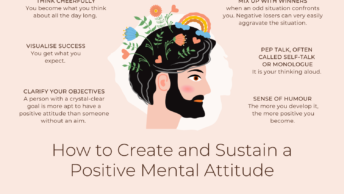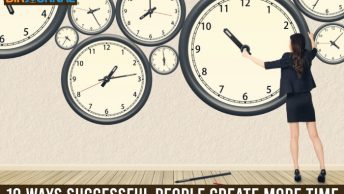Procrastination is the psychological reaction that people have in response to any of the tasks they perceive as unpleasant, difficult or time-consuming. Content writers can attest that delaying certain activities at hand for the sake of being idle and relaxed may look like the exact definition of being “irresponsible,” but experts discovered not only 20% of adults to be chronic procrastinators, but also a perfectly valid explanation for it. It ties in with the level of energy everyone has – which is not even equal for everyone – and the fact that every little thing we need to do on a daily basis is bound to drain some part out of it. Subsequently, when we procrastinate, we try to preserve energy and when we opt for more relaxing activities – walking, shopping, seeing friends or sleeping – we, in fact, strive to fuel up the tank.
Nevertheless, when procrastination becomes your way of living, you might be in danger of neglecting your responsibilities altogether and coming across as unreliable. So, if you feel you are at risk, let’s look at a few scenarios that can change that around:
- Making a Commitment
As a standard procrastinator, taking on a new responsibility might either put you on track or get you derailed. In any case, firmly affirming – either to yourself, in writing, or through a public email or message to another – that you are going to embark on a specific challenge or task is likely to maximize your efforts to do so. For most procrastinators, communicating their intentions to another person will determine a more proactive and serious response in them, as opposed to not saying anything and covering for his/her faults. In such cases, deadlines work miracles because, regardless you are dragging things for days on end, you know there will come the time to work and act on your commitment.
- Setting Goals
We all know New Year resolutions are nothing than big words on paper unless we do something about them. If you think that envisioning your (near) future will help you beat procrastination just because you have a plan, up your sleeve, the reality is you will still need to act upon your dreams. President Eisenhower said, “Plans are worthless, but planning is everything.” Indeed, the motivation and excitement that come together with whichever target you plan to achieve might just be the necessary fuel to put your wheels on motion.
- Getting Rid of Distractions
Focusing on one thing at a time is probably the biggest challenge of our times. When writing a piece or doing a report or preparing a speech, there are going to be a million of other stimuli surrounding and distracting you, starting with your smartphone, your laptop, your friends, and family. Since we don’t usually have the luxury of going away to get something done and procrastination is not an option anymore, the next best thing you can do is silence all devices in the room for at least a short period. That way, you can be confident that the world won’t be crumbling down if you don’t pick up your phone, for instance.
- Learning to Say No
We’re not going to suggest you put an end to procrastination by refusing to take on any new job. Instead, we’re firm believers that limiting the amount of work to whatever you consider is achievable for you will do you good in the end. Firstly, the overload will make you panicky, confused and most likely set you up to fail, especially with your history of procrastination. Secondly, by eliminating the stress that comes with too much work on your shoulders, you are making room to direct your thoughts and energy in the direction that you decide it counts.
- Changing Emotions
Procrastination is rooted in our emotions, as psychologists suggest. When you beat yourself up for not completing a task the day or week or month you thought you would, the heavy feelings are directed towards you, and they create a negative loop. But overcoming the guilt and blame tendencies and replacing them with acceptance and forgiveness is surely a better way to look at your behavior. In all truth, being idle doesn’t mean your brain and body don’t do anything either, it’s just that they work for different sectors of your health and well-being. And you can simply take that time “off” to recharge and prepare for the next big thing you need to do.
With one out of five people found out to be a habitual procrastinator, these tips can help you fuel up the tank of energy to get things done on time. Let us know if they’ve worked for you.
image: GettyImages













